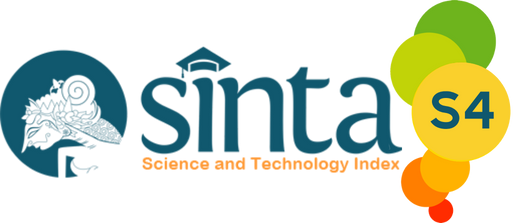Why students fail, and how they can succeed – a case study focusing on repeating students in a module on technology management
Abstract
Keywords
Full Text:
PDFReferences
Adeleke, T. E., & Emunemu, B. O. (2024). Educational implications of increase in repetition rates in Nigerian Secondary Schools. In Educational Management and Leadership. Nigeria: The Department of Educational Management, University of Ibadan.
Boateng, J. K., Attiogbe, E. J., & Kunbour, V. M. (2022). Influence of adult learners’ self-direction on group learning. Cogent Social Sciences, 8(1), 2064592.
Brainy Quote. (2024). Homepage. Retrieved from http://www.brainyquote.com/quotes/
Brück-Hübner, A., & Nierste, W. (2024). Needs for the Successful Implementation of Virtual International Teaching in Higher Education: A Reflection based on Practical Experiences. Internationalization of Teacher Education in Higher Education: Theories, Concepts and Practical Approaches of Virtual, Blended and Physical Mobility, 75-86.
Creswell, J. W., & Poth, C. N. (2016). Qualitative inquiry and research design: Choosing among five approaches: Sage publications.
Erhun, W. O., Jegede, A. O., & Ojelabi, J. A. (2022). Implications of failure on students who have repeated a class in a faculty of pharmacy. Currents in Pharmacy Teaching and learning, 14(2), 166-172.
Farid, M. R. H., Rananda, A., Aflahudin, M. A. N., Musalim, D. A. P., Hariftyani, A. S., Hanani, N. K., . . . Hewiz, A. S. (2023). Low Tuberculosis Screening among Household Family Members of Tuberculosis Patients in Banyuarang and Sidowarek. Journal Medical Informatics Technology, 86-90.
Fitriani, D. H., & Kirana, D. P. (2022). Higher order thinking skill (HOTS) in English language textbook in senior high school. International Journal of Research on English Teaching and Applied Linguistics, 2(2), 55-66.
Guest, J., & Riegler, R. (2022). Knowing he standards: how good are students at evaluating academic work? Higher Education Research & Development, 41(3), 714-728.
Heath, S., & Shine, B. (2021). Teaching Techniques to Facilitate Time Management in Remote and Online Teaching. Journal of Teaching and Learning with Technology, 10, 164-171.
Lasisi, H., Ajibade, B., Ajayi, O., Obiyemi, O., Thakur, S., & Adetiba, E. (2021). Implementation of cloud-based biometric attendance system for educators in a developing country. Paper presented at the Journal of Physics: Conference Series.
Mubarok, S., Utomo, A. P. Y., Safitri, A. N., Ngabiyanto, N., Pratama, G. S., & Utami, F. (2024). Persepsi Siswa terhadap Hasil Belajar dalam Pemanfaatan Media Pembelajaran Interaktif Kahoot Bahasa Indonesia Teks Deskripsi. Dinamika Pembelajaran: Jurnal Pendidikan dan bahasa, 1(4), 34-45.
Pack, J. (2021). Moviemaking in the Classroom: Lifting Student Voices Through Digital Storytelling. Portland: International Society for Technology in Education.
Pacursa, L. B., & Alip, E. P. (2023). Unravelling the Extent of Students’ Procrastination in a State University in the New Educational Landscape. Open Access Library Journal, 10(4), 1-7.
Petik, M. (2024). M2M Communications in 5G Networks: Data Protection and Privacy Aspects. In Privacy, Data Protection and Data-driven Technologies (pp. 123-142): Routledge.
Rivas, A. (2021). How Companies Handle Anonymous Complaints: An in Depth Look at the Guidelines and Regulations for Audit Committees and Businesses. (Honors Capstones). Northern Illinois University,
Robb, L. (2024). Lil Lou’s Beauty and Barber College. Retrieved from https://lillousbeautyandbarbercollege.com/
Segooa, A. M., & Kalema, B. M. (2024). Big Data Analytics Artefact for Outcome-Based Funding Prediction in South African Public Universities. International Journal of Service Science, Management, Engineering, and Technology, 15(1), 1-27.
Snead, S. L., Walker, L., & Loch, B. (2022). Are we failing the repeating students? Characteristics associated with students who repeat first-year university mathematics. International Journal of Mathematical Education in Science and Technology, 53(1), 227-239.
Souza, S. M., & Bittencourt, R. A. (2021). Sentiments and Performance in an Introductory Programming Course Based on PBL. Paper presented at the 2021 IEEE Global Engineering Education Conference (EDUCON).
Swart, A. J. (2015). Student usage of a learning management system at an open distance learning institute – A case study in electrical engineering. IJEEE, International Journal of Electrical Engineering Education, 52(4), 142-154.
Swart, A. J. (2023). Activities suitable for the development of graduate attributes among senior engineering students. Tuijin Jishu/Journal of Propulsion Technology, 44(3), 77-85.
Swart, A. J. (2024). Consistent engagement from the start of a semester enables academic student success - a case study of first-year engineering students. Global Journal of Engineering Education, 26(3), 192-197.
Refbacks
- There are currently no refbacks.








